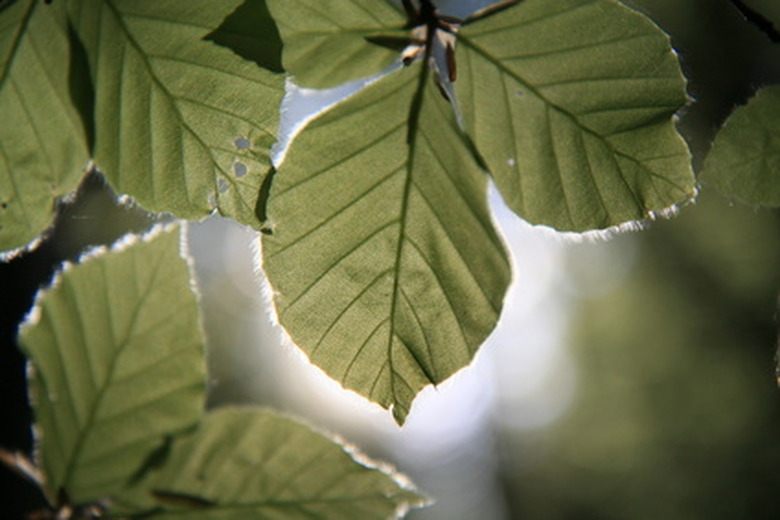Leaf Diseases In Beech Tree
The beech tree is a slow to moderately growing tree that can reach heights up to 80 feet. This deciduous family of trees contains more than 800 species. These sun-loving trees adapt to a wide range of soil types and are mostly drought tolerant.
Beech trees are susceptible to certain leaf diseases. These diseases, though not fatal, can be disfiguring and injurious to the beech tree if left untreated.
Powdery Mildew
Powdery mildew is a fungal disease that overwinters in defoliated debris that surrounds the tree. During the wet spring months, the fungal spores are released and transported, by wind and rain, onto the newly developing foliage surfaces. Infected foliage develops a powdery white covering that can appear on either side of the leaf.
- The beech tree is a slow to moderately growing tree that can reach heights up to 80 feet.
- Powdery mildew is a fungal disease that overwinters in defoliated debris that surrounds the tree.
This cosmetic disease does not kill the beech tree but may result in excessive defoliation when left untreated. Powdery mildew is easily treated with fungicidal treatments.
Leaf Scorch
Bacterial leaf scorch is a bacterial disease that can result in the death of the beech tree. Infected trees will display browning and yellowing of foliage, leaf wilt and premature defoliation. Bacterial leaf scorch is spread by leaf hopping insects. Although the disease can be quickly spread throughout the tree, there is no evidence of cross-infections between trees.
This bacterial disease is chronic and will return season after season until the tree has succumbed to the disease. The continued defoliation and dieback of twigs and branches results in the tree's complete loss of vigor and death.
- This cosmetic disease does not kill the beech tree but may result in excessive defoliation when left untreated.
- Infected trees will display browning and yellowing of foliage, leaf wilt and premature defoliation.
There is no bacterial treatment or cure for bacterial leaf scorch. Remove the infected tree and replace it with resistant vegetation.
Anthracnose
Anthracnose is a classification for a group of fungi that causes infections on deciduous and evergreen trees. Commonly referred to as leaf or tree blight, anthracnose infects the foliage, flowers and stems of the beech tree. Infected beech trees develop small tar-like spots on foliage, which eventually become deadened and sunken.
Newly developed foliage will curl and appear distorted. Stems, twigs and branches that become infected with anthracnose become weakened and girdled. This is a result of the tissue damage that prevents the passing of watering and nutrients to the limbs. Severely infected beech trees will experience die-back, premature defoliation and cankering around the base of the tree.
- There is no bacterial treatment or cure for bacterial leaf scorch.
- Severely infected beech trees will experience die-back, premature defoliation and cankering around the base of the tree.
Prune infected areas from the tree using sterile shears. Sterilize the shears in between cuttings. Fungicidal treatments are effective in controlling the disease.
